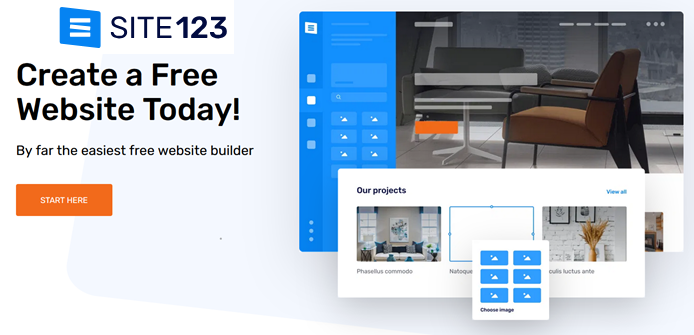Websites
Understanding Web Hosting
- A Beginner's Overview

Welcome to the wild world of the internet, my friend!
If you’re thinking about building your own website (and trust me, you should), there’s one thing you’ve gotta get right from the start - web hosting. Yeah, it sounds boring, but it’s actually the foundation that’s gonna keep your website standing tall. Think of it like this: If your website was a house, web hosting is the land it’s built on. No land? No house.
In this no-nonsense guide, we’ll break down web hosting, the different types you can choose from, and what to look for when picking a hosting provider. By the end of this, you’ll be making web hosting decisions like a boss. Let’s go!
What is Web Hosting?
Alright, picture this: your website is like a house, and web hosting is the land where that house sits. Simple, right? It’s the service that lets your website live on the internet. When you build a website, all your files - HTML, images, videos - need a home, and that home is a server. The hosting company provides that server, making sure your website is available 24/7 to anyone who wants to visit. Because nobody wants a website that’s MIA when the world’s trying to check it out.
Types of Web Hosting (Because One Size Doesn’t Fit All)
1. Shared Hosting
- The Deal: This is like renting an apartment where you share the space (server resources) with other tenants (websites).
- Best For: Beginners, bloggers, small businesses - anyone who’s just getting started and doesn’t need to go crazy with resources.
- Pros: Cheap. Easy. You don’t need to be a tech genius to handle it.
- Cons: If your “neighbors” (other websites) are hogging up resources, your site could slow down. It’s a bit of a gamble.
2. VPS (Virtual Private Server) Hosting
- The Deal: Now we’re stepping it up. VPS is like renting a townhouse - you're still sharing some resources, but you’ve got your own space, too.
- Best For: Growing websites that need more control and flexibility without going full-on dedicated.
- Pros: More control, better performance, and you can scale as you grow.
- Cons: Costs more than shared hosting, and you’ll need to know a bit about tech to manage it properly. Or hire someone who does.
3. Dedicated Hosting
- The Deal: This is the penthouse suite. You get the entire server to yourself, no sharing, no nonsense. Full control.
- Best For: Big-time businesses, high-traffic sites, and control freaks who need every ounce of power and customization.
- Pros: Maximum performance, top-notch security, and it’s all yours.
- Cons: $$$. You’re paying premium here, and you need serious tech chops to manage it, or at least the budget to hire a pro.
What to Look for in a Web Hosting Provider (No, Not All Hosts Are Created Equal)
When picking a hosting provider, you gotta think like an investor. What’s gonna give you the best ROI? Here are some key things to watch out for:
- Uptime Guarantee: You want a provider that promises at least 99.9% uptime. No one’s got time for a site that’s always down, right?
- Customer Support: Look, things are gonna break. It happens. Make sure you’ve got access to 24/7 support through live chat, phone, or tickets. Check those reviews, too - don’t trust anyone with bad customer service.
- Bandwidth & Storage: Make sure your hosting plan can handle all the traffic and content you plan to throw at it. You don’t wanna max out on bandwidth when your blog finally blows up.
- Security Features: SSL certificates, regular backups, and firewalls - don’t sleep on security. Hackers are lurking, and your site needs to be locked down.
- Scalability: Your website’s gonna grow (if you’re doing it right), so make sure your host can grow with you. Look for a plan that’s easy to upgrade when traffic starts flowing.
Tips for Choosing the Right Hosting Plan (Because Money Matters, and So Does Strategy)
- Know Your Needs: Are you building a blog, an e-commerce store, or a corporate site? Different sites have different needs. Plan for your traffic, content, and features. Static sites need less, but if you’re adding e-commerce or streaming videos, you need more juice.
- Don’t Fall for the Cheap Stuff: You get what you pay for. If the hosting deal seems too good, it probably is. Cheap hosting usually means you’re sacrificing performance or support. Don’t play yourself.
- Read the Reviews: I mean, really read them. Look for reviews on uptime, support, and performance. Don’t just take the word of the hosting company - they’re selling you a service, not reality.
- Add-Ons & Extras: Some hosts offer perks like free domain registration, email hosting, or a website builder. Look for value, but don’t get distracted by shiny objects you don’t need.
- Think Long-Term: You’re not just building a website for today, you’re building one for tomorrow. Make sure your hosting provider can grow with you and keep up with your big dreams.
Final Thoughts
Boom! Now you’ve got the 101 on web hosting. Picking the right host can make or break your website’s performance, security, and overall success, so don’t rush the decision. Do your research, compare your options, and find the one that fits your needs.
Whether you’re starting a blog, launching an e-commerce empire, or building your personal brand, your web hosting choice is the first big step toward crushing it online. Get it right, and you’re off to the races!
My Recommendation
Want to Keep Learning and Growing?
Subscribe To My Newsletter
Sign up and get notified every time I publish a new article or come across tools that can help you grow your business or presence online.
Follow Me On Social Media

Copyright © Asah Capital Enterprise, LLC.
2733 East Battlefield Rd. Springfield, MO 65804, USA.
All Rights Reserved.
